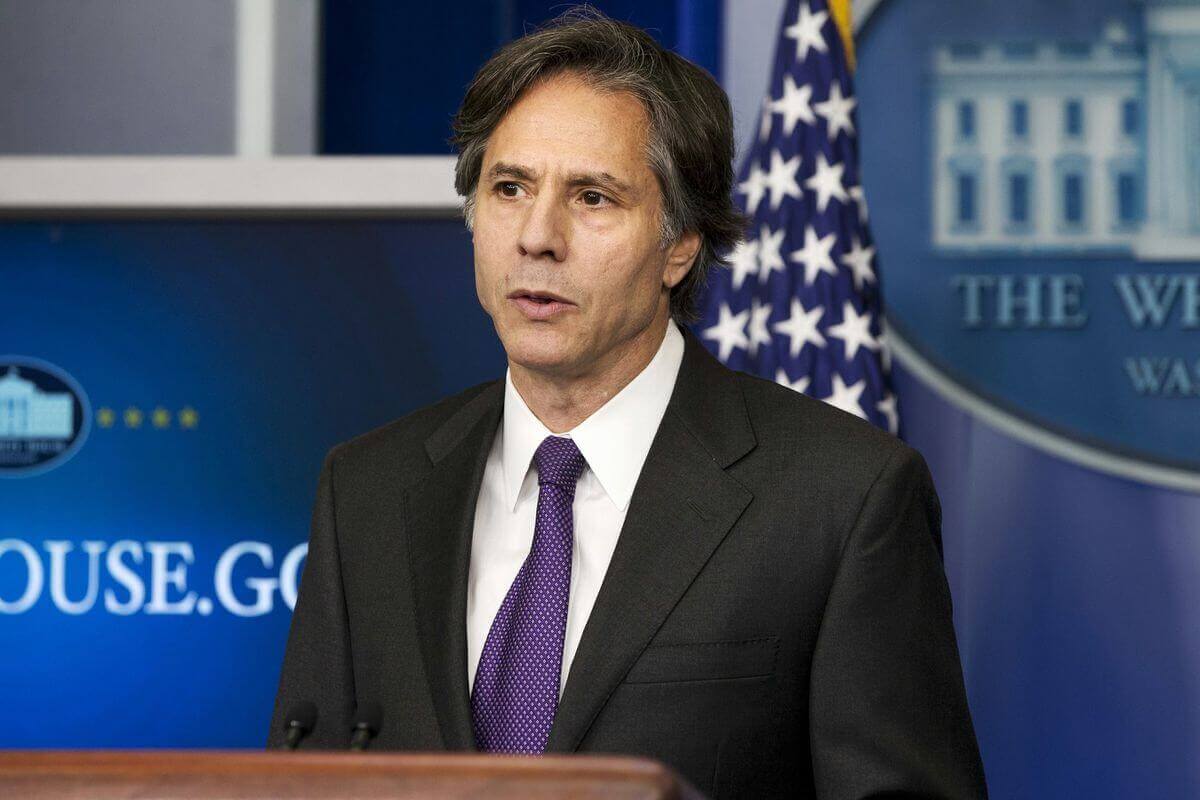Despite Venezuelan President Nicolás Maduro and others within his administration expressing hope for ‘improved relations’ and “dialogue” under the Biden administration in Washington, the new Secretary of State, Antony Blinken, has quickly quashed this prospect by saying that the US will continue to recognise opposition leader Juan Guaidó as the legitimate and interim leader of Venezuela. Blinken also failed to provide any reassurances that the Trump administration’s “maximum pressure” strategy will be relaxed, saying that the new administration will instead look to “more effectively target” sanctions on Venezuela, with an aim of removing Maduro from power.
During his Senate confirmation hearing on Tuesday, Blinken said, “We need an effective policy that can restore Venezuela to democracy, starting with free and fair elections,” and described Maduro as a “brutal dictator”.
His comments follow Venezuela’s December’s parliamentary elections, during which the Maduro-allied PSUV coalition emerged victorious and regained control of the national legislature, which had been under opposition control since 2015. The US, led by the now-former Secretary of State Mike Pompeo, decried the election as ‘fraudulent’. He said, “We consider this group to be illegitimate and will not recognize it nor its pronouncements.” The US made similar comments following the 2018 presidential election, when Maduro maintained his incumbency largely by banning several popular opposition leaders from running.
Since 2017, the US has levied various sanctions against officials within the Maduro administration as well as the state-owned oil company PDVSA. Consequently, PDVSA’s oil output fell from 1.911 million barrels per day (bpd) in 2017 to just 796,000 bpd in 2019. All of this has pushed Venezuelan exports to their lowest levels in almost 80 years, which has left the already embattled and cash-strapped country struggling to meet the basic nutritional and medicinal needs of its population. In fact, a recent study revealed that a basket of basic goods in the country increased in price by 2,021% between December 2019 and December 2020.
Against this dire backdrop, Maduro said on Wednesday, “We must tell the United States: We want to improve our relations, to make it one of respect, of mutual acknowledgement, a relationship with a future.” Likewise, the new President of the National Assembly, Jorge Rodríguez, said, “This new National Assembly is taking the broadest approach possible toward dialogue.” He even said that Venezuela is willing to discuss the release of the ‘CITGO 6’, six American oil executives who have been held in the country for over three years on arbitrary charges of corruption after being lured to Caracas under the false pretences of doing business with PDVSA.
The possibility for reconciliation, however, was further complicated by the last few days of the Trump presidency. On January 5, Pompeo reaffirmed that the US rejects the results of the December elections and that it continues to recognise Guaidó as the “legitimate President of Venezuela”. On January 19, the US sanctioned three individuals and 11 entities “for their ties to a network helping Nicolas Maduro and his illegitimate regime evade U.S. sanctions on Venezuela’s oil sector”. Later that day, Pompeo held a phone call with Guaidó, wherein they “discussed their mutual goal of a peaceful democratic transition” from the current “illegitimate Maduro regime”.
The path paved under the Trump administration now appears to be continuing under the Biden administration, with Guaidó’s ambassador to Washington, Carlos Vecchio, invited to the inauguration ceremony.
Although Biden, like Blinken, called Maduro a “dictator” during the campaign trail, it was expected that he would take somewhat of a softer stance than Trump, especially considering Guaidó’s waning popularity and influence. In fact, even the EU, a long-time supporter of Guaidó, is now referring to the opposition leader as one of the “representatives of the outgoing National Assembly”. The recent election results have gravely damaged Guaidó’s claims of being the interim president, given that this title was given to him based on his position as the leader of the National Assembly.
Moreover, although Western actors seem intent on propping up opposition leader Juan Guaidó, the truth is that neither he nor Maduro are popular among Venezuelans. Despite Guaidó claiming that the low voter turnout in the parliamentary elections was due to voter disenfranchisement and the fact that over 24 opposition parties boycotted the election, a November survey by Caracas-based pollster Meganalisis revealed that “81.2% want Maduro and the socialist party to leave power”, “89.1% consider Guaidó a ‘burden’ on the nation”, and that 74.8% of the population saw no point in voting on Sunday as they felt as though neither result would bring any improvement.
Hence, while the US’ criticisms of the illegitimacy of Maduro’s rule are perhaps fair, the Venezuelan people would perhaps be better served if the Biden administration puts its weight behind a different candidate or invests in an alternative solution.
Biden Administration Quashes Maduro’s Hope For Dialogue, Puts Weight Behind Guaidó
The Biden administration’s Secretary of State, Antony Blinken, recognised opposition leader Juan Guaidó as the legitimate leader of Venezuela and called President Nicolás Maduro a “brutal dictator”.
January 22, 2021

IMAGE SOURCE: JACQUELYN MARTIN / APThe new US Secretary of State, Antony Blinken
